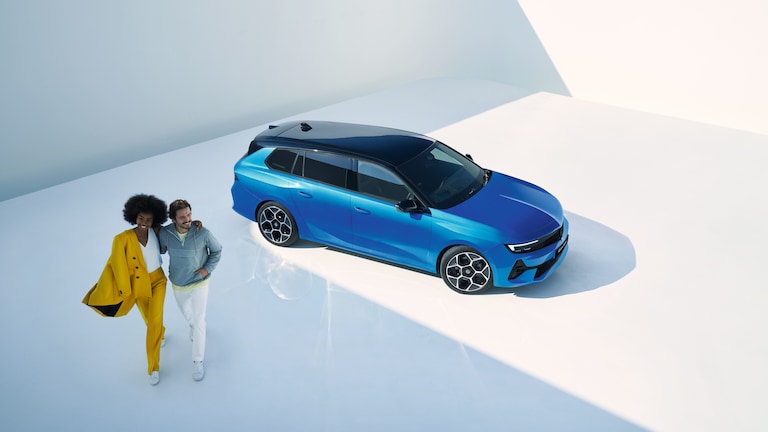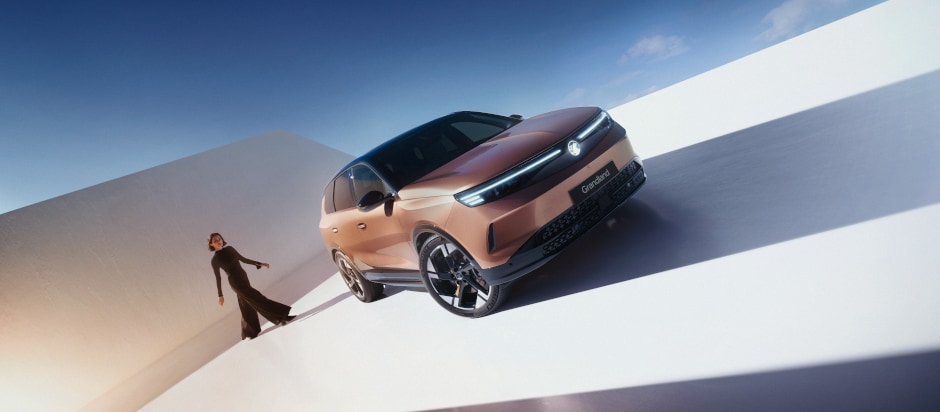
Electric vehicle maintenance
Whether you buy the new Corsa Electric, Mokka Electric or one of our Plug-in Hybrid models, your electric vehicle has simpler technology and fewer moving parts than a vehicle with a conventional engine.
With electric vehicles, there are no exhausts, fuel delivery systems, oil filters, gears or clutches to wear out, replace or maintain. So, with less to go wrong, you can save on long-term servicing costs.
You can find out more about the costs of servicing your electric vehicle with Vauxhall here. Or check out some of the most common questions about electric vehicle maintenance below.
For added peace of mind all our electric range come with the following:

Roadside Assistance
Our all-electric models include 3 years of roadside assistance, whilst our Plug-in Hybrid models come with 1 year of roadside assistance, for added peace of mind. This includes roadside assistance, home service, relay assistance, and European assistance.

8 Years battery warranty
Enjoy peace of mind with our eight years/100,000 mile battery warranty for electric vehicle. Even better, the warranty is transferable and guarantees at least 70 per cent charging capacity throughout the warranty period.
Frequently asked questions
Are electric cars reliable?
Electric cars have proved to be incredibly reliable. This is partly because they have fewer moving parts than a conventionally-engined vehicle, so there's less to maintain over time.
For extra peace of mind, all Vauxhall electric vehicles are covered by an additional warranty for the battery which guarantees that at least 70 per cent of its capacity is maintained for 100,000 miles, or eight years.
How long will a battery last?
How long does it take to charge an electric car?
The length of time taken to charge an electric car will depend mainly on the type of electrical connection you use. The slowest is a normal three-pin socket. The supply from these is around 2kW per hour, and as the smallest battery offered in a Vauxhall electric car is 50kWh, so you can do the calculations and see that is will take a long time to get to 100% full. They can be useful if you just want to get a few extra miles in the ‘tank’ though.
The most common charger for EV owners is a wallbox, which will usually feed power at either 3.6, 7.2 or 11kWh. These are perfect for home use as they will fully charge a battery overnight while you sleep.
Public AC chargers have similar outputs to a wallbox, so plugging in while you shop or have lunch for an hour would add around 30 miles of range to a car like the Corsa Electric.
Finally, the biggest and fastest chargers of all are the DC ‘rapids’ found at service stations and other locations. These typically have outputs of 50kW up to 150kW and can take the battery in a Corsa Electric, Mokka Electric, Combo-e or Vivaro-e to 80% in less than half an hour.
Should i charge MY EV every night?
Both the New Mokka Electric and Corsa Electric have a range of over 200 miles on a single charge - meaning you won't have to charge your car as much as you think!
British Gas offers an electricity tariff which means there are two electricity unit rates. One during peak times and a cheaper unit rate at off-peak times. The off-peak unit rate is between the hours of 12.00 am to 5.00 am. So when your EV needs charging, we'd suggest charging your EV in the off-peak times.
Is it expensive to Service electric cars?
No. In fact the maintenance costs of electric cars are around 30% less on average than an equivalent petrol or diesel!
As electric cars have fewer moving parts, they are cheaper and easier to maintain than a car with a traditional engine. There’s no exhaust, engine oil, spark plugs or air filter to change and the electric motor and battery are maintenance-free. There are still parts which need looking after of course, but components which are shared with internal combustion-engined cars such as suspension and body panels are no more expensive.
What does the battery warranty cover?
Vauxhall’s new vehicle warranty on all of its models covers material or manufacturing defects for a period three years or 60,000 miles from first registration (or 100,000 miles for the Vivaro and Movano vans).
We recognise that some owners might be nervous about the new technology around electric vehicles, so the warranty for the lithium-ion battery pack is extended to eight-years or 100,000-miles for extra peace of mind. This guarantees that at least 70 per cent of the battery’s charging capacity is maintained for the warranty period, or it will be repaired by Vauxhall, subject to the usual terms and conditions. The warranty also includes roadside assistance as part of the package.
Does the battery need special care?
Your Vauxhall’s motive battery pack is maintenance free, so you won’t ever need to add fuel, oil or water to keep it healthy - all you will need to do is charge it when needed. When the car is serviced, your Vauxhall technician will plug into the car’s ‘brain’ and check the health of the battery and advise you how to ensure it has the longest life.
The electronics will do most of the hard work for you, ensuring that the cells are kept at the optimum temperature in extreme weather or while rapid charging. This will make sure it can charge at the fastest possible rate but will also ensure the long-term health of your battery.
Can every Retailer look after an electric car?
Can i get a home charger installed?
Yes! Generally, charging your car can be as easy as plugging in your phone or laptop, and all you need is a domestic socket. However, we recommend owners have a dedicated home wallbox installed which will make charging far faster, safer and more convenient.
You could also get a Government grant of up to £350 towards installing a home wallbox. To qualify, you need to have dedicated off-street parking, a smart meter and use an approved installer. To find out more, search ‘Electric Vehicle Homecharge Scheme (EVHS)’.
How do i charge MY EV if i live in a flat?
There are three ways to charge your EV: using a normal household socket, a wallbox or a public charge point. With the Electric Vehicle Homecharge Scheme (EVHS) lots of local councils are incentivised by the government and will pay up to 75% of the charger cost. And your landlord may have certain obligations to help too.* Alternatively, the public charging network is growing everyday so it is worth checking if there is a charging station just around the corner.
Visit our charge point finder to find your nearest charging point. Or search 'On-street Residential Chargepoint Scheme' for more information.


